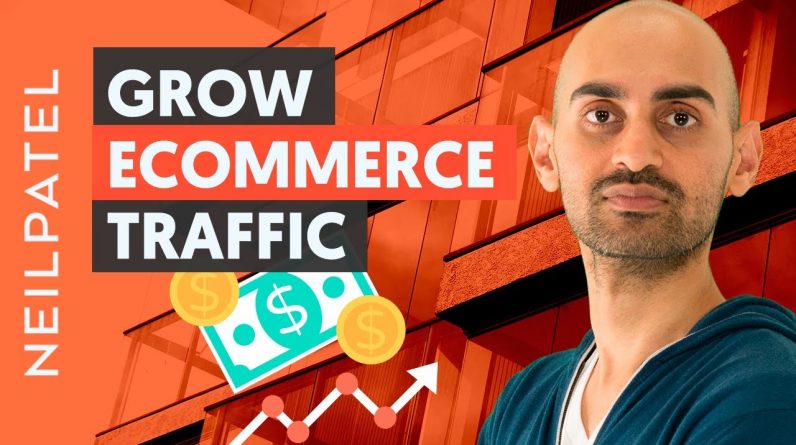
eCommerce marketing is competitive. Google wants you to spend money on paid advertising. So how do you rank your set organically without spending money on paid ads? Today I’m going to teach you how to bring organic traffic to your online store.
RESOURCES & LINKS:
____________________________________________
Ubersuggest: https://neilpatel.com/ubersuggest/
7 Proven Ways to Grow eCommerce Sales By 50% or More : https://youtu.be/ECFguym4230
____________________________________________
So step one, identify how people are searching for your products on Google.
You got to do keyword research. I want you to go to Ubersuggest, look at your products that you’re selling, type them into Ubersuggest.
It’ll give you suggestions for all the other keywords that people are typing in.
Some of them will be more popular than your keywords, some of them will be less popular.
But it’ll give you an idea of what people are looking for.
If you don’t know what people are looking for, how do you know what to optimize your pages for?
The second step, I want you to look up your competitors in Ubersuggest.
Type in their URL. Once you type in their URL, I want you to do a few things. The first is go to the Top Pages section. The Top Pages section shows you all their pages, more so, that are ranking in Google, the keywords that each of those ranks for, and who’s linking to them.
Then, I want you to go to the Keywords Report in the Traffic Analyzer.
The Keywords Report shows you a laundry list of all the keywords that are ranking for them, from the most popular to the least popular.
This again will help you figure out what keywords you should be targeting.
Without this, you won’t know where to focus your attention on.
Step number three, I want you to optimize your product pages for those keywords.
I’m talking about include those keywords in the title tag, the meta description, within your product description, right?
It needs to be everywhere, H1 tags. By doing that, search engines will know that you’re targeting those keywords.
The next step, optimize your pages, especially the product pages, for user experience.
Here’s what I mean. Everyone thinks about eCommerce SEOs like I need to build links, I need to pop in keywords.
Yes, that is important.
But if people get a terrible experience, they’re going to leave your site.
If they leave your site, they’re not going to come back.
Google’s going to notice a high bounce rate.
Boom, your rankings are going to tank, or in some cases, they’re never going to go up because you weren’t ranking in the first place.
But you optimize that user experience. Have beautiful images, have videos that showcase your product.
Have reviews, whether they’re good or bad, just reviews that are transparent.
All this stuff helps improve the user experience, helps you build trust, helps you get more sales in the long run.
It also helps you rank higher.
Next up, I want you to build links. You already used the Ubersuggest tool to see who’s linking to your competitors, right, based off their top pages.
The next step, continually update your pages.
Here’s the thing that no one really talks about in Google’s algorithm.
Do you know what one of the biggest factors is?
How fresh is your content?
Have you noticed that Wikipedia continually ranks?
It’s because they constantly have people updating their content and their pages.
If you’re not doing that, you won’t rank as high.
Next step, interlink your products.
Cross-link them, cross-promote them together. Not only does that help increase total cart size.
It helps increase the link juice that is flowing to all your pages, so they all end up ranking better.
The next step, make sure your site is mobile compatible.
And what I mean by mobile compatible, don’t just have your site, you know, be responsive and your checkout work on a mobile device.
I’m talking about having your site also load extremely fast.
If it loads fast, you have good page speed, what you’ll find is your rankings for all mobile drastically increase.
Page speed is more important on mobile from everything that we’ve tested than desktop.
So the mobile experience is not just about responsive and the user experience. It’s also about speed.
And speed not only improves conversion rates, but it also improves your rankings.
Last but not least, use schema markups for your product.
Doing this will help your rankings.
You’ll combine all of this, you’ll find that your eCommerce site can rank.
Sure, you should still do paid ads, especially if they’re profitable.
But you should do both. Go after the SEO traffic and paid.
► If you need help growing your business check out my ad agency Neil Patel Digital @ https://neilpateldigital.com/
►Subscribe: https://goo.gl/ScRTwc to learn more secret SEO tips.
►Find me on Facebook: https://www.facebook.com/neilkpatel/
#SEO #NeilPatel #DigitalMarketing

